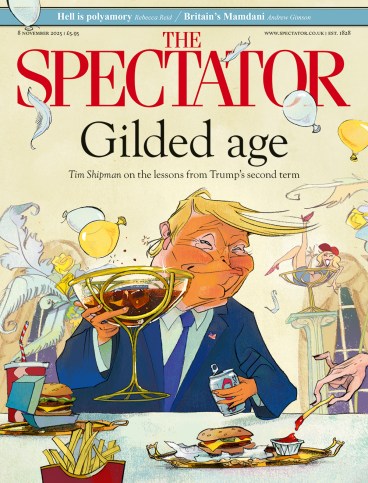
For Competition 3424 you were invited to write a short story for which ‘Conman’ could be the title, containing a dozen words of four or more letters beginning with con or man. This produced a larger-than-usual entry in which all were fairly evenly matched, making it tricky to whittle it down to the six below who are rewarded with £25 John Lewis vouchers.
Consider the lilies… he murmured, contemplating his reflection in Suzanne’s mirror. Like them he looked good, but unlike them he could sow, though his seeds were romance, and as for spinning – that was his metier. From their first date (contact, he called it) she’d been consumed with passion for his charm and confidence, regardless of the consequences. Apps: so easy. He knew how to conform to every woman’s dream of the ideal consort (old-world courtesy). If one suspected, he moved to another: his conscience was clear. Suzanne, so far, accepted his consoling attentions (her mother’s death, her chihuahua’s ailments); he might even push it to the contract stage, given her bank balance, and was more than happy to be a conduit for conspicuously high living at her expense. A bit of the old conjugal would keep her sweet. Then the concierge’s voice on the phone. ‘Police, sir. Shall I…?’
D.A. Prince
The consequences are still with us.
He seemed at first merely conventional, a managerial type perhaps, always convincing in his opinions. He never mangled or manipulated an argument; he expressed himself in a clear and rational manner; he avoided any contretemps by remaining at all times friendly. We found him a consummate advocate for each of us, manfully defending us from the low opinion of those conceited and condescending family members and ‘friends’ to whom we introduced him.
We think he loved us both. At any rate, he respected us sufficiently to make his overtures, physical and emotional, to each of us, but separately. He wished to hurt neither. Call it a twin thing, but we could not contemplate a life with him, not together. We eliminated him. Rubbed him out.
Were we convicted of his manslaughter? Not at all. We were unsuspected. But we both miss him, very much.
Bill Greenwell
In Rome, delighted confusion. The Conclave had hardly congregated an hour and already white smoke was manifest. Conjecture was rife – could all the mandatory procedures have been concluded so swiftly? A befrocked but manly priest appeared on the balcony, a Congolese cardinal with a mandarin air. He radiated quiet confidence. The convivial crowd bellowed its enthusiasm, keen to hear the conference’s conclusion. The priest made a manual gesture, the conventional appeal for silence. He seemed to be muttering to himself, joyfully intoning some Latin mantra, perhaps. It was eagerness to hear his words that quelled the crowd to silence. He manoeuvred the microphone towards him, paused, considered his words, and then spoke with conspicuous glee: ‘April fool!’ Black smoke billowed again, the punchline of his joke. A manifestly confused nun in the crowd was heard to mutter savagely: ‘It’s a con, man.’
George Simmers
Tom attempted to manipulate his mother by convincing her that he was too ill for school, but despite all of his pleadings he failed. Back at school, after drinking many glasses of what he claimed was contaminated water, he went to the school nurse complaining of tummy pains. Rugby was a great school full of manly young lads. Why, the nurse wondered, did Tom find the place so contemptible? But Tom, pretending to writhe in pain, eventually managed to convey that he was manifestly ill. She considered all manner of possible causes but, taken in by his plausible performance of someone in dire distress, she concluded that he must be unwell and should be sent home. ‘Oh dear, Thomas Arnold,’ sighed his mother as Tom sank into his favourite armchair, ‘do you think you are really suited to being a headmaster?’
Alan Millard
Conor Manley had never believed in writer’s block, being convinced that it was manifestly a fiction employed by the lazy and untalented. But even he, once shortlisted for the Man Booker, had to confess that, despite sticking manfully to it, he was blocked. Then, serendipitously, he noticed in his magazine of choice a little writing contest. Contemplating an entry in keeping with the magazine’s gravitas, he thought possibly a story about a mythical creature, an Incan coniraya, perhaps, or a manticore, would fit the bill. But the page stayed stubbornly empty. Inspiration supplanted serendipity when he realised that the task comprised manifold elements of an AI prompt: form, structure, and parameters. His typed instruction was followed moments later by a story that conformed to the competition’s word limit, and included the requisite 12 words (‘Man’ not counting), even if the mythical creatures seemed somewhat shoehorned in. Nevertheless, thought the writer, it’ll do.
Simon Godziek
We were in complete accord. Playing his manservant, I kept discreet watch whilst serving the champagne and punch, giving my confederate covert assistance against the other contestants at the green table. If, for instance, I dusted a chair, it signified a contender strong in diamonds; if I raised an eyebrow, the man held aces; if I said ‘A condiment, my lord?’ hearts were meant; if ‘Wine or punch?’, clubs. If I blew my nose – well, so on.
Our contrivance remained undiscovered, our method a masterpiece of manipulation. Our only minor contention was my faith – my conscience troubling me, though manufacturing mirth in him.
Half a century later, on his deathbed, nearly blind, the legend confounded his family by sending for a priest.
I arrived in time. His face manifested pain. He managed a whisper: ‘I have a confession…’
‘Preserve your strength, Your Grace,’ said I. ‘I know it.’
Ralph Goldswain
No. 3427: Lines of beauty
You are invited to write a paean on a place traditionally considered to be ugly. Please email entries of up to 16 lines to competition@spectator.co.uk by midday on 19 November.






Comments